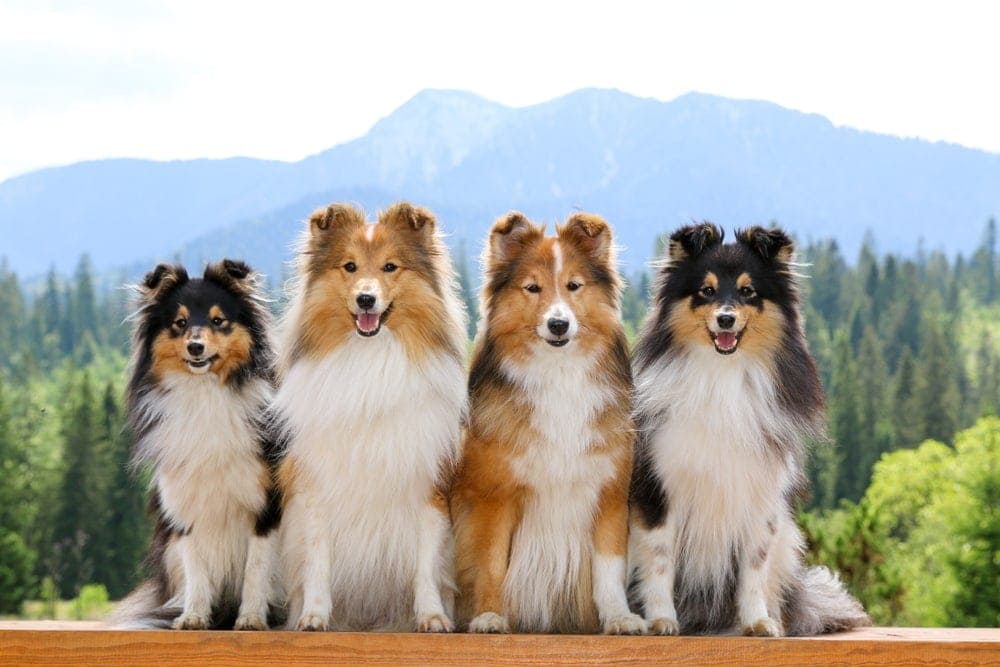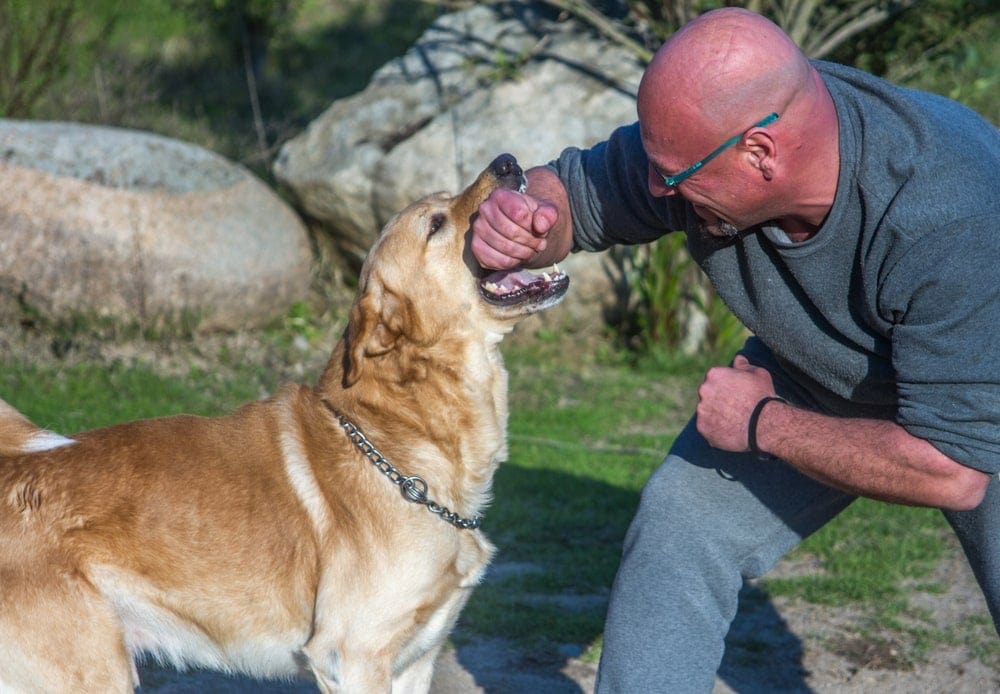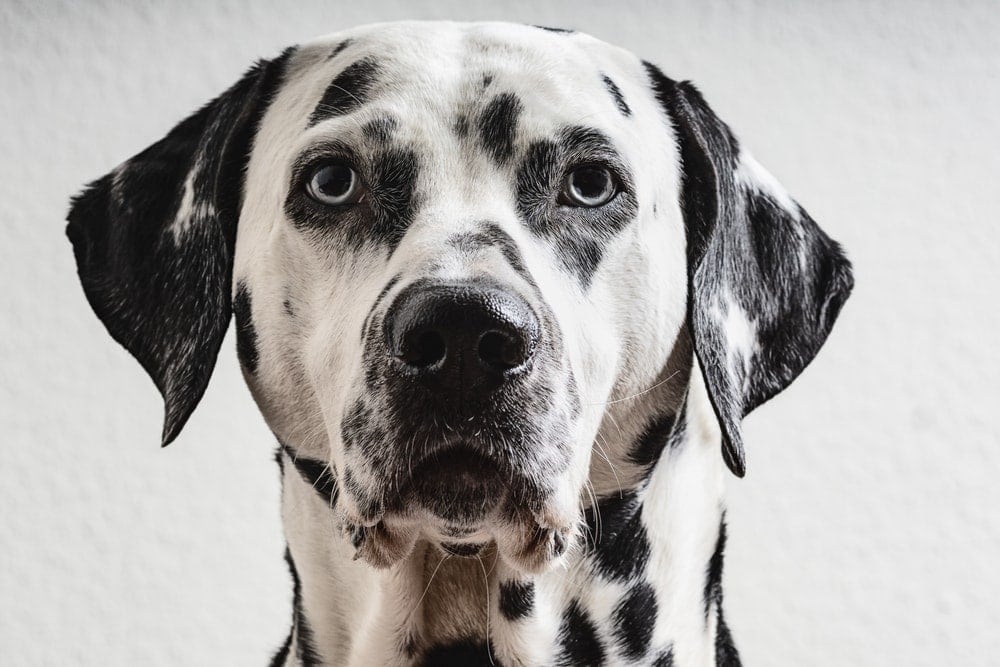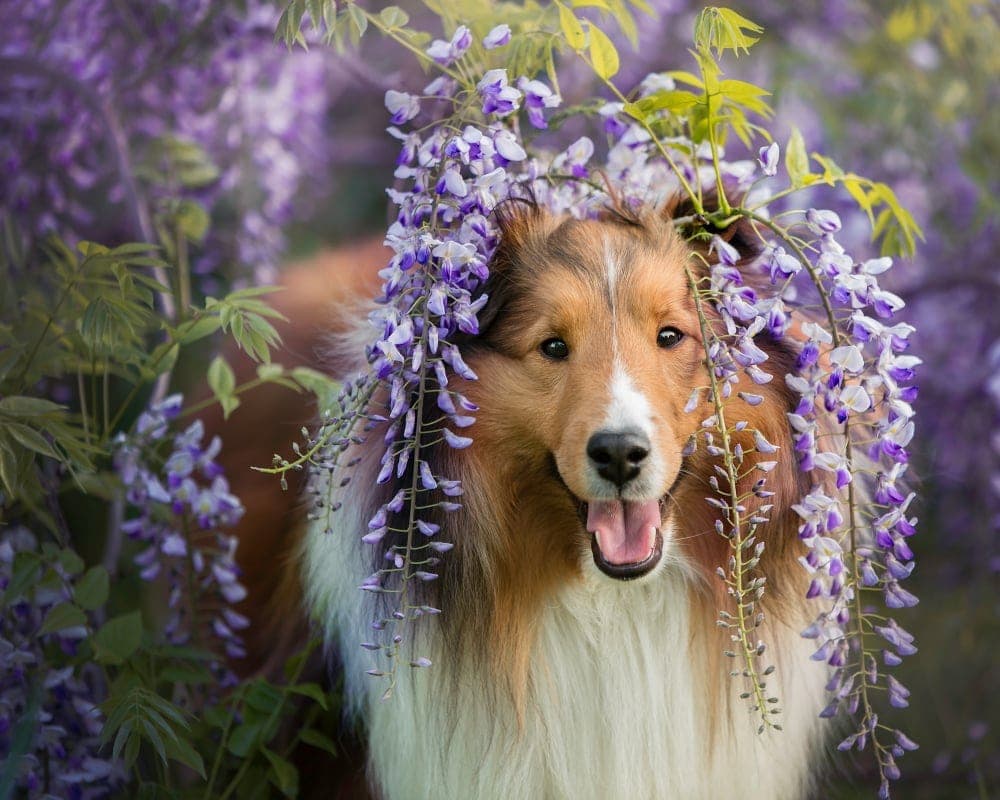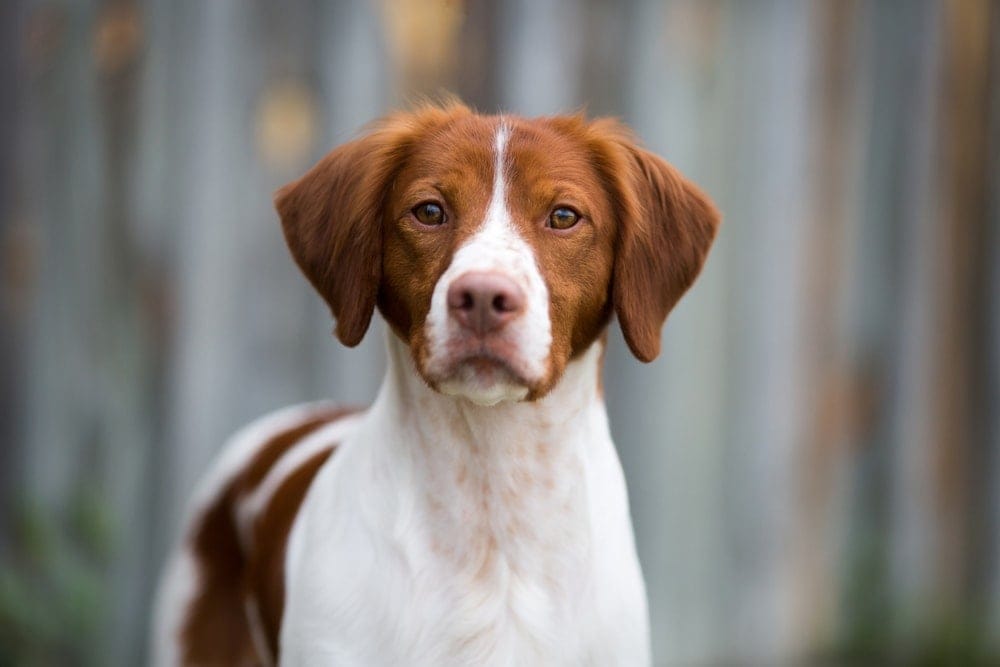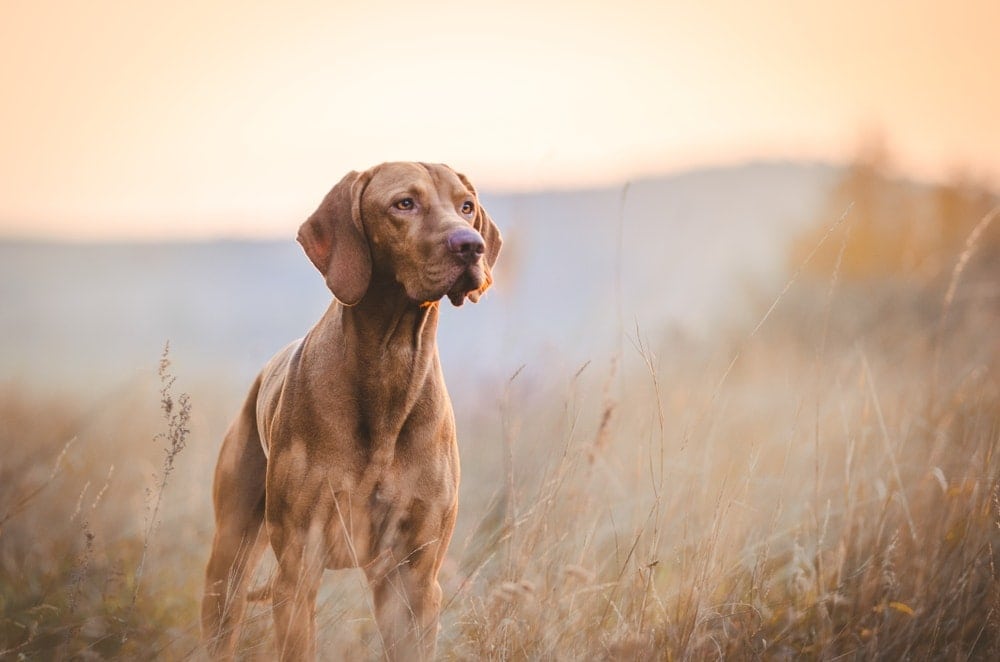Shelties and Collies are both gorgeous dogs with a lot to offer as pets, but there are quite a few differences between them.
When you take the time to learn about these dogs, you can choose the right companion to match your needs. You don’t want to make a decision before getting this information.
The biggest difference between Collies and Shelties is of course height and weight. The Collie is a large dog breed, reaching 22-26 inches at the shoulders and 50-75 pounds in weight. In comparison, Shelties are much smaller: the standard height is 13-16 inches and 15-25 pounds.
But let’s see more details in the article below.
Physical Traits
Shelties can be anywhere from 13 to 16 inches tall with a weight of 16-20 pounds. This is the same for both males and females.
Collie males can measure anywhere from 22 to 24 inches tall, and females from 20 to 22 inches. Males can weigh 44 to 75 pounds, while females can weigh 35 to 64 pounds. There is no question that this is the overall larger of the two dogs.
The Collie has a wider and longer muzzle than the Sheltie. Both of these dogs have about the same light brown and white coloration. Collies can have a mostly black coat, which is not the case with Shelties. This is one of the easiest ways to tell which is which, but only sometimes. Coolies have fairly narrow eyes, while the Shelties’ is a bit wider.
Collies have very long fur all over their body, except on the head and legs. They have a very rough outer coat, hence the name “Rough Collie”. Both dogs have double coats that keep them warm even if extremely cold weather. The collie tends to shed more and therefore require regular grooming. If you own one of these dogs, you better be ready to do a lot of brushing (and vacuuming).
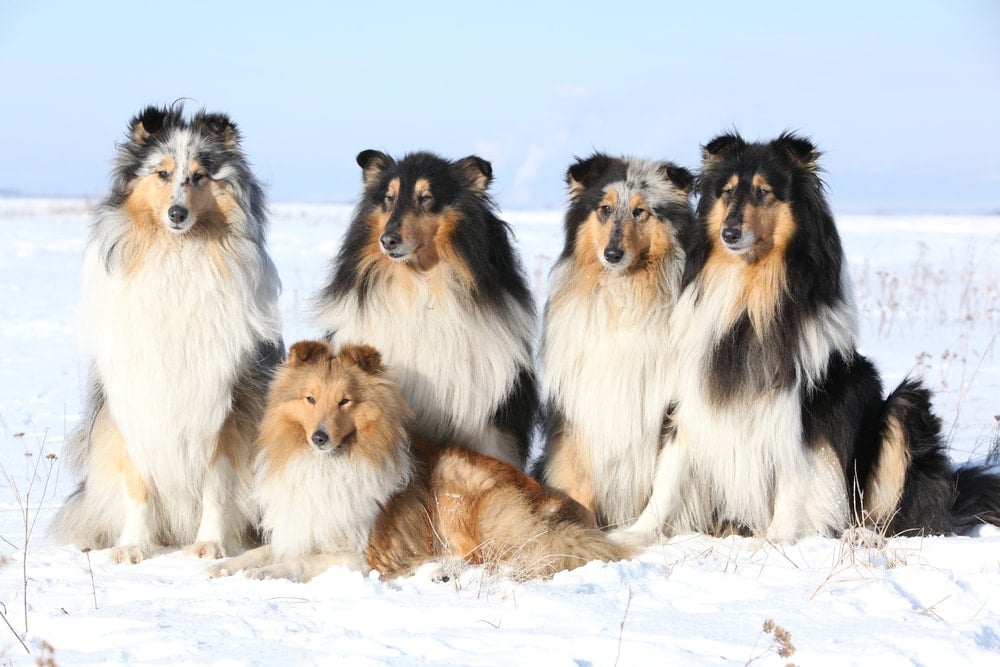
History
Collies have a long history as being hard-working dogs that were used to herd livestock on farms. They have also been used to rescue people and other animals in water. It was officially recognized by the American Kennel Club back in 1885. The precise origin of this breed is still something of a mystery.
The Sheltie is definitely a relative of the Collie, and it too can be traced back to Scotland. It was first recognized as a breed by the AKC in 1911. These dogs were also used for herding, though not quite as much. They are believed to come from Scottish collies or border collies.
Personality
Both of these dogs have a reputation for being very friendly, playful, and are great around small children. One of the main differences is that collies are a bit more standoffish around strangers. The Sheltie will confidently approach strangers with an upbeat attitude.
Shelties are more prone to separation anxiety, as they generally don’t like being left alone. This can make them somewhat difficult to care for, especially if there is nobody home with them during the day. The Collie is a bit more independent, despite its social nature.
These dogs love to get attention and are incredibly loyal. They are also anxious to please and highly intelligent. These qualities make them very easy to train.
Collies are very willful dogs that can become especially stubborn if they are not trained from an early age. It might be a good idea to enlist the help of a professional trainer for this dog, as it can be tricky.
Shelties are a bit harder to train, but still very receptive when you start with them young. These dogs can quickly become very bossy and prone to thinking that they own the house if they are not trained properly.
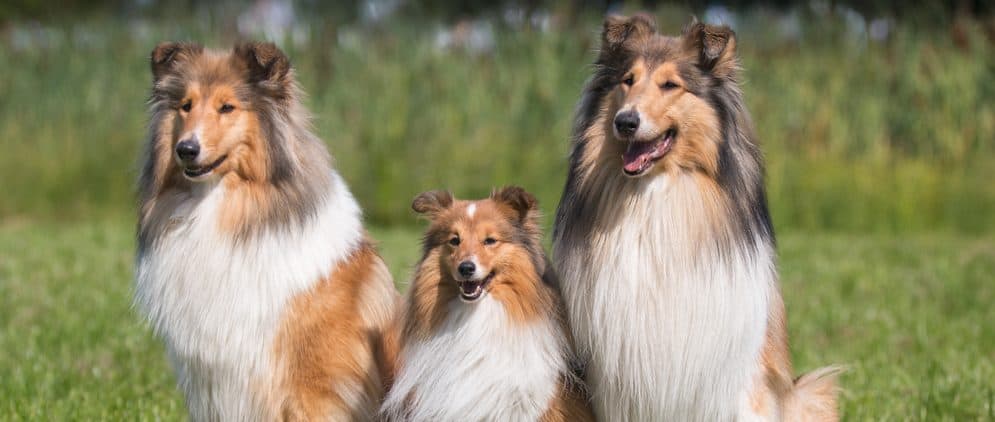
Lifespan
The Sheltie has an average lifespan of 12 to 14 years, while the Collie typically lives for 8 to 12 years.
Common Health Problems
Both of these dogs have their own set of health problems that you’ll need to watch out for.
Some of the most common health issues with Shelties include:
- weight gain: These dogs are prone to excessive weight gain, which can cause issues with their joints, bones, and even heart. It is important for them to be kept on a strict diet with minimal treats.
- Hip dysplasia: Some Shelties eventually develop hip dysplasia, which is a common issue with smaller dogs. This is due to their hyperactive nature, which wears down their hip joint over time. It usually starts becoming a real problem when they are around six or seven years old.
- Skin problems: It is also not uncommon for these dogs to have problems with skin inflammation, specifically dermatomyositis. This condition can become worse with exposure to sunlight. It is characterized by lesions on the skin.
- Von Willebrande’s disease: This genetic condition causes excessive bleeding, which can be a problem if the dog ever has to undergo surgery.
Some common health problems among Collies include:
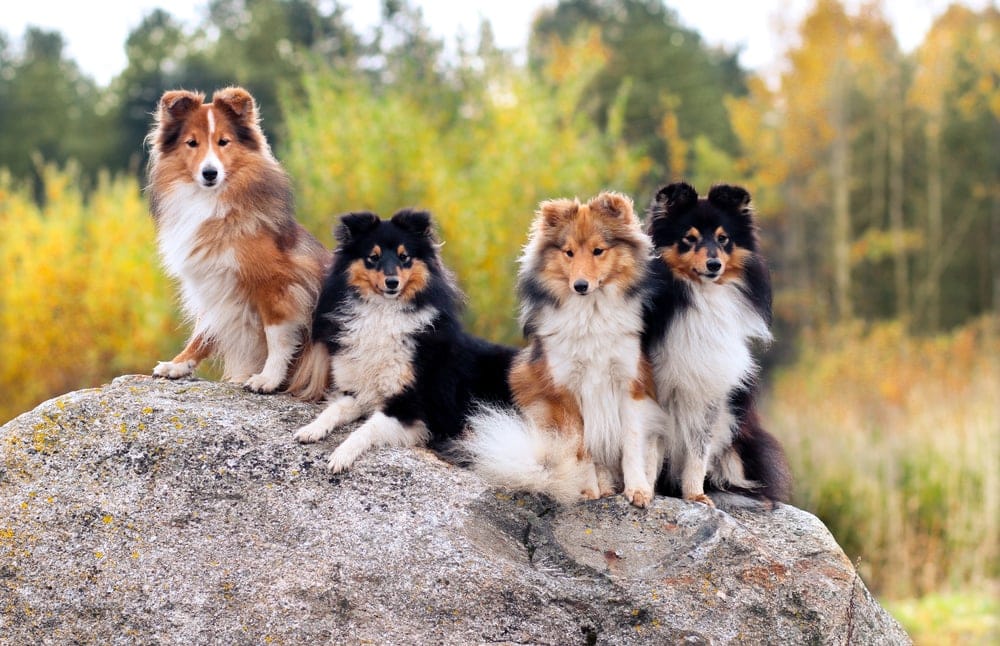
- Eye anomaly: Some collies end up developing problems with their vision as a result of progressively anomalous eye development. This is essentially just a misshapen eye.
- Cataracts: These dogs can also develop cataracts, which will impair their vision if they are allowed to progress long enough.
- Allergies: Collies are known for having allergies, which can make caring for them challenging.
- Autoimmune diseases: There are a variety of autoimmune diseases that can affect collies. These diseases tend to affect the skin, causing moderate to severe inflammation. This can be very painful for your dog if it goes untreated.
Cost
Collies can cost anywhere from $1,500 to $10,000, depending on the breeder and pedigree. Shelties are far less expensive with a price range of $300 to $2,200. They are by far the more affordable option.
Final Thoughts
There are quite a few similarities between Shelties and Collies, but it is important that you take note of the differences as well. These dogs are very friendly, affectionate and make for perfect family pets. If you are looking for a smaller dog, a Sheltie is the better option. Collies are far more expensive, but they are very well-tempered. Shelties do tend to live a bit longer on average, but they can be stubborn at times. It is crucial that you take all of this into consideration before deciding which breed to get.
